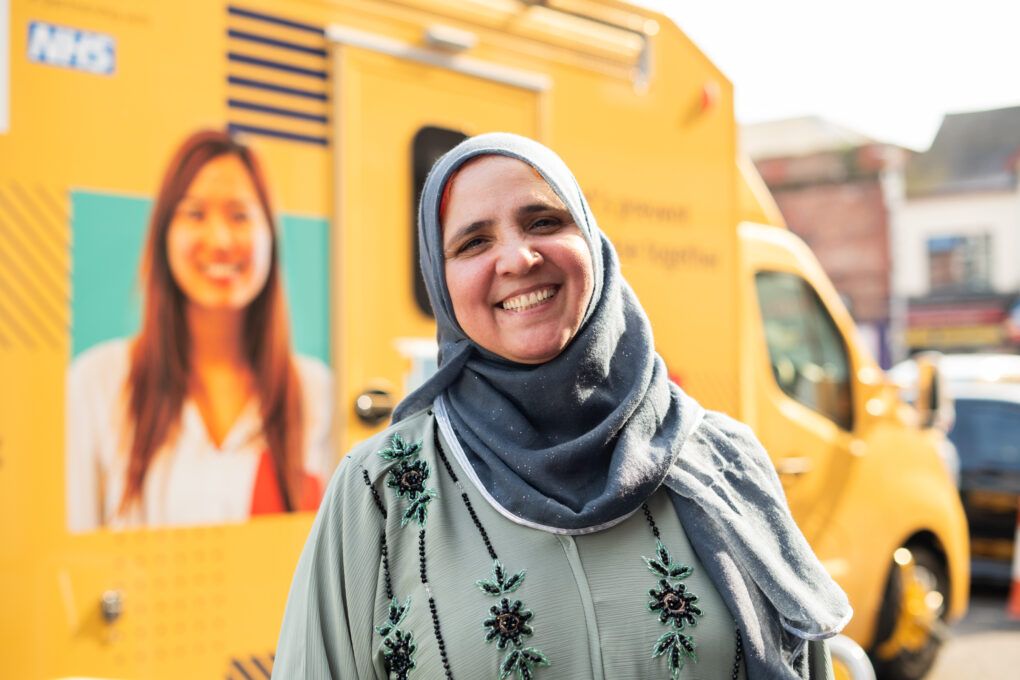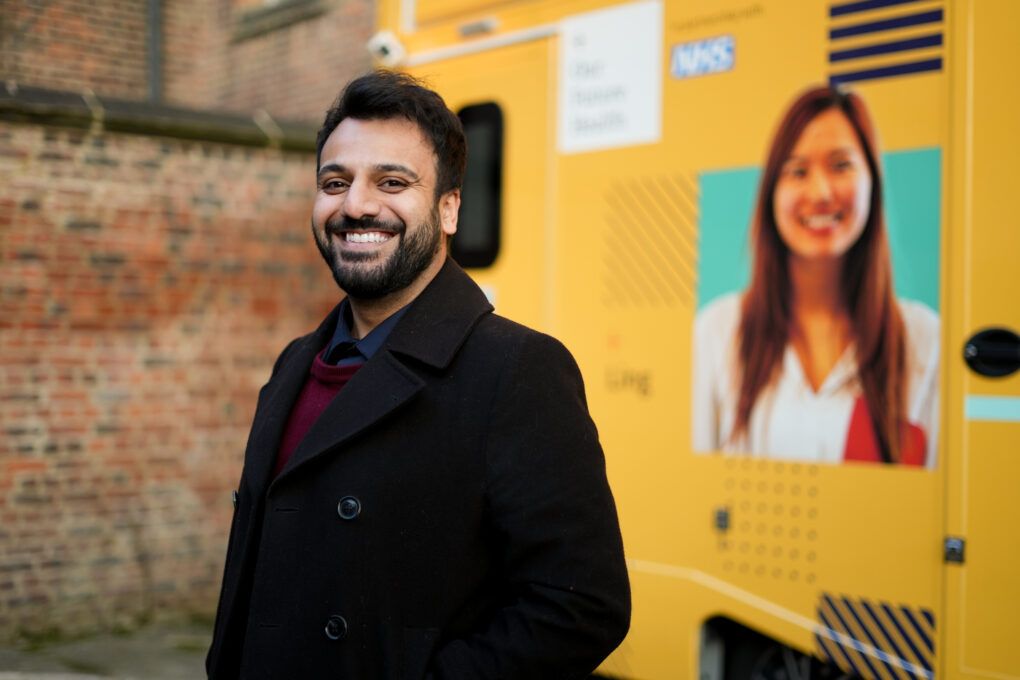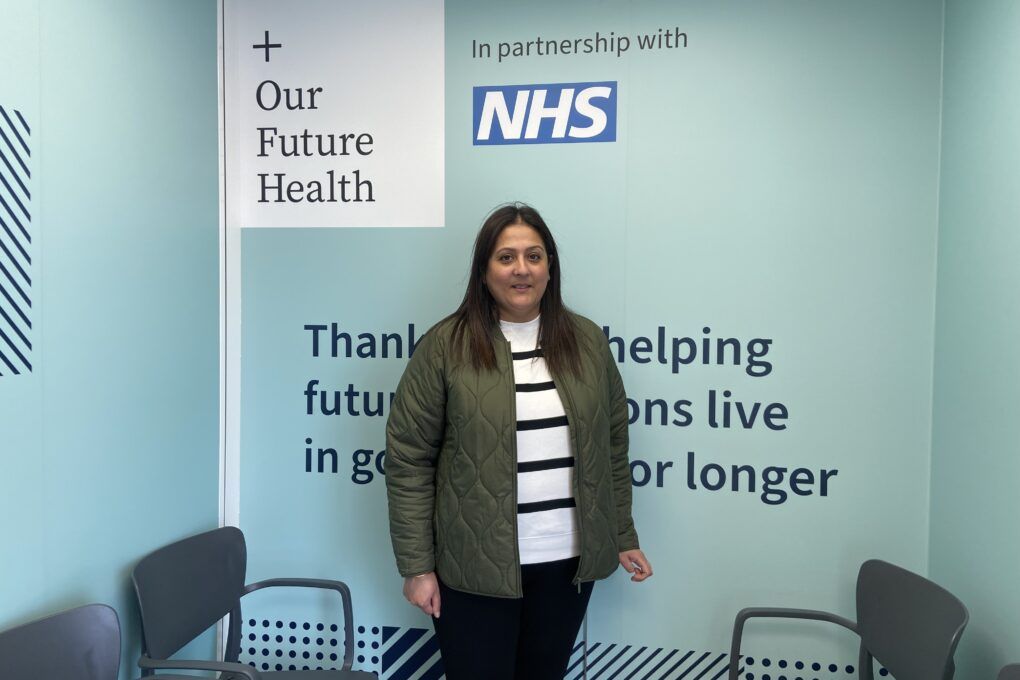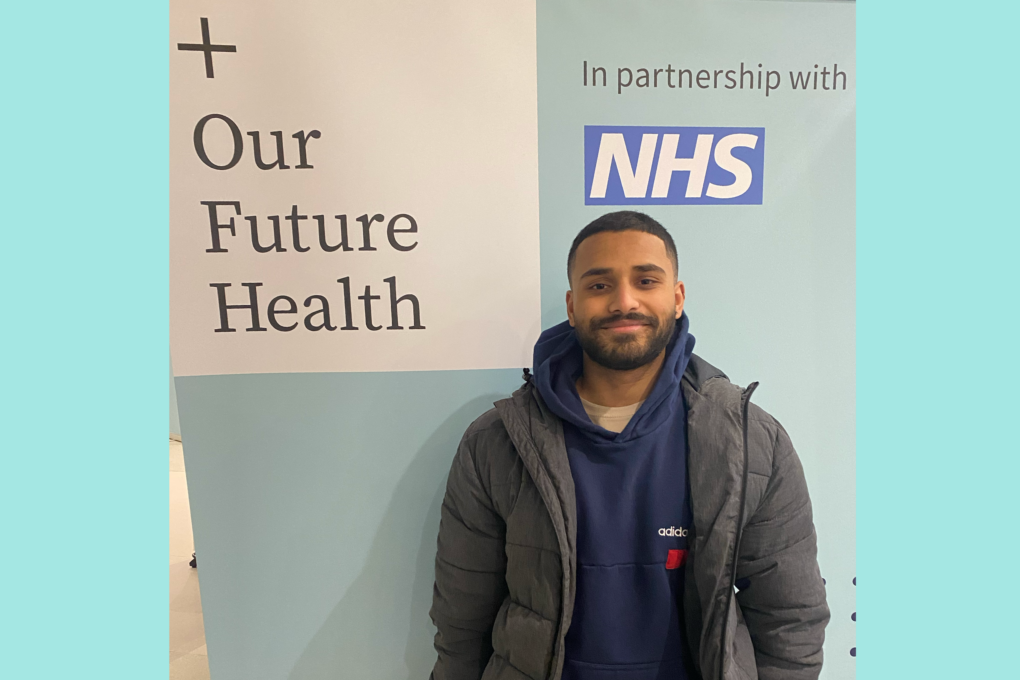Volunteers from the South Asian community on why they’re supporting Our Future Health

South Asian Heritage Month first launched in 2020, and now runs every year from 18 July to 17 August. It celebrates the cultures, histories and identities of British South Asians.
South Asians comprise the largest minority ethnic community in the UK. According to the 2021 census, there are roughly 5 million people of South Asian heritage – that’s 7.5% of the population.
However, historically South Asians have been under-represented in health research. This has contributed to the community experiencing significant health inequalities. For example, people from South Asian backgrounds are more likely to suffer from diabetes or heart disease.
Our Future Health is designed to help everyone live longer and healthier lives – and that includes improving representation for South Asians. We’re building a diverse resource that truly reflects the UK population, so that new discoveries improve the prevention, detection and treatment of diseases for everyone.
We recently published an article that revealed 6% of our volunteers come from Asian backgrounds. Here, four of them discuss their reasons for taking part in Our Future Health.
Kamran

Kamran Khalid is a teacher from Manchester. “I didn’t realise just how little South Asian data is used in current medical research, so volunteering felt like the right thing to do,” said the 33-year-old. “The more data we have, the more representative of everyone future research will be.
“Everything went smoothly at my appointment. The staff were lovely – I actually enjoyed the experience! To anyone thinking of signing up, please do. You get useful information about yourself, plus it’s good for our community and future generations.”
Sundeep

Sundeep Kalsi attended her appointment in Tamworth.
“I especially want to learn about my heart health,” she said. “In the South Asian community, heart disease and high blood pressure impact us more.
“I found out at my appointment that I have high blood pressure. Now that I know this, I feel empowered to do something about it.”
Sagar

Sagar Sanadi, 22, is a medical student. He joined Our Future Health to help create a greater understanding of epidemiology within the UK.
“As a medical student, I always put myself forward for things like this. I believe prevention is always better than cure,” he said.
“If you can target specific things, for example, ‘in Leeds, a certain disease is more prevalent than in other areas’, then you can focus efforts on fixing the problem.”
Bushra (pictured at the top of this page)
“My friend suggested joining and now I’ll pass on the recommendation,” said Bushra Bibi, who attended her appointment in Manchester.
“Maintaining good health is important because in my community we are all responsible for caring for our elderly family members and our children. This research could really help us all.”
Together, we can prevent disease
Diversity is central to our mission – as this video, featuring Dr Raghib Ali OBE, our Chief Medical Officer, explains.
“As a doctor working in A&E, I’ve seen many people from the South Asian community coming in over the years with things like diabetes, heart disease and kidney failure,” says Raghib.
“By taking part in the UK’s largest health research programme, you can support research into finding better ways to treat these diseases or even prevent them – and help your loved ones and your community.”
To find out more about our progress on diversity, you can read a recent article by Raghib on our website.

Let’s prevent disease together
By volunteering for Our Future Health, you can help health researchers discover new ways to prevent, detect and treat common conditions such as diabetes, cancer, heart disease, stroke and Alzheimer’s.